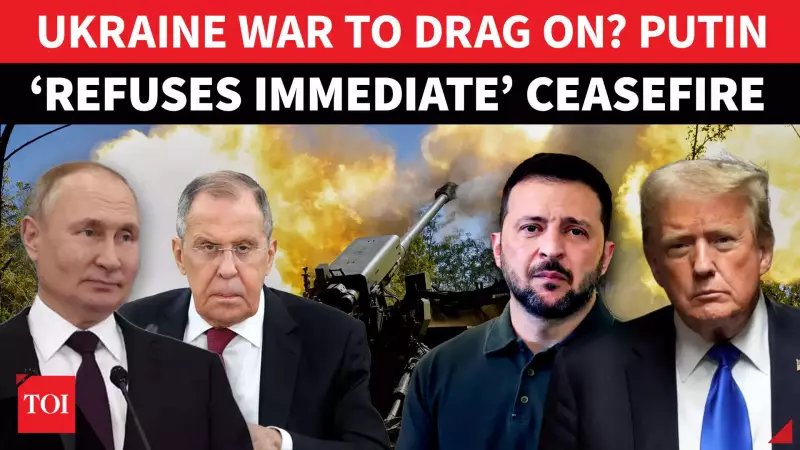
In a stunning geopolitical development that has sent shockwaves through international diplomatic circles, Russian President Vladimir Putin has firmly rejected calls for an immediate ceasefire in Ukraine from prominent global figures, including former US President Donald Trump and Ukrainian leader Volodymyr Zelensky.
The Diplomatic Standoff
Russian Foreign Minister Sergey Lavrov has publicly revealed the strategic reasoning behind Moscow's controversial position. According to Lavrov, Russia cannot afford to halt military operations at this critical juncture, suggesting that pausing now would undermine their strategic objectives in the conflict.
Strategic Calculations Behind the Rejection
The Russian leadership appears to be calculating that continuing military pressure will ultimately force more favorable negotiation terms. This hardline stance comes despite increasing international pressure and humanitarian concerns surrounding the prolonged conflict.
Key factors influencing Moscow's position include:
- Military momentum and territorial gains on the ground
- Strategic buffer zone objectives in eastern Ukraine
- Political considerations ahead of potential peace talks
- Geopolitical positioning against Western influence
International Reactions and Implications
The refusal has significant implications for global diplomacy, particularly as various nations attempt to mediate the conflict. The rejection of ceasefire appeals from both Western leaders and Ukraine itself signals Moscow's determination to pursue its military campaign despite mounting international isolation and economic sanctions.
This development comes at a crucial time when humanitarian organizations have been pleading for ceasefires to allow civilian evacuations and aid delivery to conflict-affected regions.





